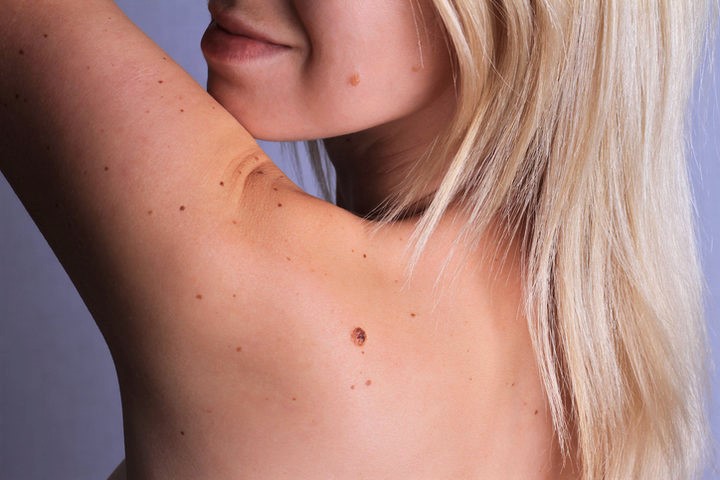
Skin, what are the effects of stress
The skin is the largest organ of our body, and like any other part of the body, it can be affected by stress
By stress we mean that state of psycho-physical fatigue, induced on the organism by external stimuli (stressors) which can be of different nature, including the physical one, such as an illness or a trauma, but also psychological, such as an intense emotion or a state of anxiety or worry (for example relating to work, family, school, relationships, etc…).
A particularly intense period of stress can affect a person’s health and well-being.
As far as the skin is concerned, stress can aggravate or reactivate some skin diseases.
What are these pathologies? How does the skin react to stress?
Several studies have shown how stress affects various dermatological diseases by contributing to inflammatory processes.
In fact, stress is able to act on the hypothalamic-pituitary-adrenal axis and to induce the release of pro-inflammatory mediators from the peripheral nervous system to skin cells.
Stress itself is not the cause of pathologies, but it can exacerbate symptoms or exacerbate chronic pathologies.
All inflammatory or immune-mediated diseases that have skin manifestations can be made more serious by stress
For example, let’s talk about:
- psoriasis
- Atopic dermatitis
- alopecia areata
- bullous diseases (such as pemphigoid)
- herpes simplex
- herpes zoster (or shingles)
- candid.
Psoriasis and stress
Psoriasis is an inflammatory disease characterized by the formation of red, raised plaques covered with silvery-white scales.
The formation of these plaques is connected to an alteration of the epidermis growth process.
Stress is one of the main environmental factors that influence the progress of psoriasis.
It is quite common for patients to report a particularly stressful event in their life (such as a serious mourning) following which they have noticed the appearance of the first plaques on the skin or the recurrence of the disease after a long period of quiescence.
Atopic dermatitis and stress
Atopic dermatitis is the most common form of eczema.
Those suffering from atopic dermatitis perceive intense itching, have reddened skin and, in more severe cases, may notice the presence of vesicles and crusts.
Atopic dermatitis is more common in children, but increasingly affects adult patients as well.
Not only can the disease itself worsen under stress, but also itching, one of the main symptoms of this disease, typically increases under stressful situations and can trigger a vicious cycle of inducing scratching and aggravating the disease itself.
Other forms of eczema-related dermatitis (such as nummular eczema or nodular prurigo) can also worsen or be “rekindled” by stressful events.
Skin: seborrheic dermatitis and stress
Seborrheic dermatitis is characterized by red, scaly skin in areas of the body where there is a greater presence of sebaceous glands, such as the face, scalp and chest.
Seborrheic dermatitis, on the face, appears on the sides of the nose, eyebrows, and around the ears, while on the scalp it produces more or less intense flaking, commonly called “dandruff”.
Seborrheic dermatitis is very sensitive to stressful states and can worsen in moments of greater malaise.
Skin: alopecia and stress
Alopecia areata is characterized by hair loss in more or less large patches on the scalp.
Sometimes it can also affect the beard and other hairy areas of the body.
In the most severe forms, complete hair loss (alopecia totalis) or all body hair (alopecia universalis) can occur.
Sufferers of alopecia areata may notice the appearance of new patches of hair loss in conjunction with particularly stressful periods of life.
Rosacea and stress
Rosacea is a benign skin disease that consists of skin redness, first temporary, then permanent, of the face, especially the cheeks and the bridge of the nose.
It is caused by an altered regulation of skin vasodilation, which can be exacerbated by various factors, such as the passage in two environments at different temperatures, exposure to the sun and stress.
Acne and stress
Although induced by multifactorial causes (hormonal, inflammatory and local microbial), acne can be affected by stressful events.
Under stress, the body tends to produce some hormones that stimulate the sebaceous glands and hair follicles and induce an increase in skin inflammation.
Also, stress-induced scratching contributes to worsening acne.
Herpes virus and stress
Those suffering from herpes simplex (cold sores) know very well that the disease “reignites” with the appearance of painful blisters.
Read Also
Emergency Live Even More…Live: Download The New Free App Of Your Newspaper For IOS And Android
Does Smoking Increase Or Reduce Anxiety? The Real Effects Of Smoking On Stress
Autoimmune Diseases: Care And Treatment Of Vitiligo
Anxiety And Allergy Symptoms: What Link Does Stress Determine?
Stress And Sympathy: What Link?
Pathological Anxiety And Panic Attacks: A Common Disorder
Panic Attack Patient: How To Manage Panic Attacks?
Depression: Symptoms, Causes And Treatment
Cyclothymia: Symptoms And Treatment Of Cyclothymic Disorder
Dysthymia: Symptoms And Treatment
Psoriasis, An Ageless Skin Disease
Psoriasis: It Gets Worse In Winter, But It’s Not Just The Cold That’s To Blame
Childhood Psoriasis: What It Is, What The Symptoms Are And How To Treat It
Topical Treatments For Psoriasis: Recommended Over-The-Counter And Prescription Options
What Are The Different Types Of Psoriasis?
Phototherapy For The Treatment Of Psoriasis: What It Is And When It Is Needed
Skin Diseases: How To Treat Psoriasis?
Basal Cell Carcinoma, How Can It Be Recognised?
Acariasis, The Skin Disease Caused By Mites
Epiluminescence: What It Is And What It Is Used For
Malignant Tumors Of The Skin: Basal Cell Carcinoma (BCC), Or Basalioma


